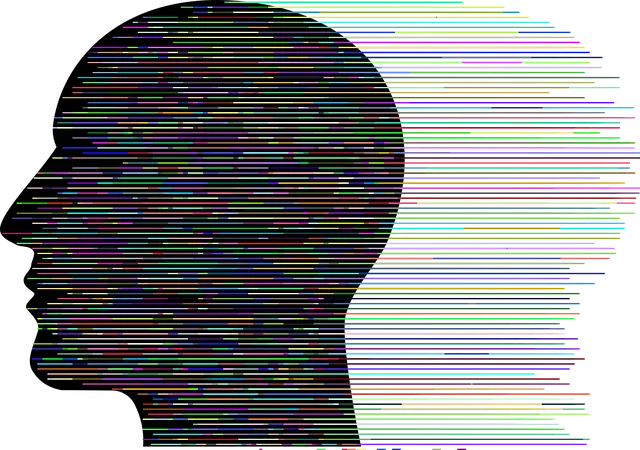Greenwood Village Kaiser Permanente (GVKP) revolutionizes mental health diagnosis through destigmatization, holistic care, technology, and evidence-based practices. Their advanced system combines data analytics, structured clinical assessments, digital tools, and AI algorithms to identify nuanced mental health patterns accurately. GVKP prioritizes patient empowerment, burnout prevention for healthcare providers, and open communication to reduce misdiagnosis rates. They offer personalized treatment plans, coping skills development, crisis intervention, and education to foster a supportive environment, setting a new industry standard in mental health care.
Mental illness diagnosis accuracy is a critical aspect of patient care, yet it remains a complex challenge. This article explores efforts to improve diagnostic precision, focusing on strategies employed by innovative healthcare systems like Greenwood Village Kaiser Permanente. We delve into their approach, evidence-based practices, patient-centered solutions, and the importance of continuous learning for building a resilient mental health care system. By examining these methods, we aim to enhance the reliability and effectiveness of mental illness diagnosis.
- Understanding the Challenge: The Complexity of Mental Illness Diagnosis
- Greenwood Village Kaiser Permanente's Approach to Enhancing Diagnostic Accuracy
- Evidence-Based Practices and Tools for Improving Diagnosis Reliability
- Patient-Centered Strategies: Empowering Individuals in Their Mental Health Journey
- Continuous Learning and Support: Building a Resilient Mental Health Care System
Understanding the Challenge: The Complexity of Mental Illness Diagnosis

Mental illness diagnosis is a complex process due to the multifaceted nature of psychological conditions. What may present as a set of symptoms in one individual can differ drastically from another, making accurate identification challenging. This complexity is exacerbated by the fact that mental health disorders often co-occur with physical ailments or substance abuse issues, adding layers of confusion. Moreover, societal stigma surrounding mental illness tends to impede open communication, hindering patients from seeking help early on. At Greenwood Village Kaiser Permanente mental health services, we recognize these challenges and strive for better diagnosis accuracy through various initiatives.
Efforts to enhance diagnosis accuracy include public awareness campaigns that destigmatize mental health issues, encouraging individuals to seek support without fear of judgment. Inner strength development programs aim to equip people with coping mechanisms, fostering resilience in the face of adversity. Additionally, mindfulness meditation practices have shown promise in improving diagnostic precision by promoting self-awareness and enabling individuals to better articulate their experiences, ultimately aiding healthcare professionals in making more informed decisions.
Greenwood Village Kaiser Permanente's Approach to Enhancing Diagnostic Accuracy

Greenwood Village Kaiser Permanente has pioneered an innovative approach to enhancing mental health diagnostic accuracy. They have implemented comprehensive strategies that blend cutting-edge technology with a holistic understanding of mental wellness. Their method involves integrating Mental Wellness Coaching Programs and Trauma Support Services, ensuring patients receive individualized care tailored to their unique needs. By fostering an environment where burnout prevention is prioritized, the healthcare provider aims to reduce misdiagnosis rates and improve patient outcomes.
This approach leverages advanced data analytics to identify subtle patterns indicative of mental health conditions. Simultaneously, it focuses on empowering both patients and providers through education and support services. The integration of these strategies creates a seamless, compassionate care pathway, setting a new standard for mental health diagnosis accuracy in the healthcare industry.
Evidence-Based Practices and Tools for Improving Diagnosis Reliability

At Greenwood Village Kaiser Permanente mental health, efforts to enhance diagnosis reliability are driven by evidence-based practices and tools. One such practice is the implementation of structured clinical assessments that provide a systematic approach to gathering patient information, ensuring consistency and thoroughness. These tools help healthcare providers make more accurate diagnoses by focusing on specific symptoms, their severity, and duration, reducing subjective biases.
Additionally, integrating advanced technology into diagnostic processes has proven beneficial. For instance, digital mental health assessments and artificial intelligence algorithms can analyze large datasets to identify patterns and support clinical decisions. Such innovations not only improve diagnosis reliability but also facilitate early intervention by flagging potential mental health issues before they escalate. Moreover, Burnout Prevention Strategies for Healthcare Providers, which focus on enhancing self-esteem and confidence, contribute to more accurate diagnoses by maintaining optimal practitioner well-being.
Patient-Centered Strategies: Empowering Individuals in Their Mental Health Journey

Greenwood Village Kaiser Permanente mental health professionals are leveraging patient-centered strategies to empower individuals in their mental health journeys. By focusing on Mental Health Awareness and promoting Coping Skills Development, the organization aims to create a supportive environment where patients feel heard, understood, and valued. This approach recognizes that each individual’s experience with mental illness is unique, requiring tailored interventions rather than one-size-fits-all solutions.
Through Crisis Intervention Guidance and other innovative practices, Kaiser Permanente strives to enhance diagnosis accuracy while fostering meaningful partnerships with patients. By encouraging open communication, providing education, and offering accessible resources, the healthcare provider seeks to ensure that individuals receive the necessary support and guidance to navigate their mental health challenges effectively.
Continuous Learning and Support: Building a Resilient Mental Health Care System

Greenwood Village Kaiser Permanente mental health services are at the forefront of a transformative journey to enhance diagnosis accuracy and patient outcomes. This involves continuous learning and support, fostering a resilient mental health care system. Healthcare professionals in this facility are encouraged to participate in ongoing training programs that focus on the latest research, innovative practices, and diverse treatment approaches. By staying abreast of advancements, clinicians can make more informed decisions, boosting their confidence in diagnosis and treatment planning.
Furthermore, building a supportive environment is key. Compassion cultivation practices are integrated into staff development programs, promoting empathy and understanding among care providers. This not only enhances the quality of patient interactions but also encourages open communication, crucial for accurate mental health assessments. Public awareness campaigns development is another strategic initiative, aiming to educate both patients and the public about various mental illnesses, their symptoms, and available support systems. Such efforts contribute to an overall improvement in mental health literacy, enabling individuals to seek help sooner and with greater confidence.
Mental illness diagnosis accuracy is a multifaceted challenge, but with dedicated efforts like those exemplified by Greenwood Village Kaiser Permanente, significant improvements are achievable. By combining evidence-based practices, patient-centered strategies, and continuous learning, healthcare systems can enhance diagnostic reliability. Incorporating these innovative approaches ensures better support for individuals navigating their mental health journeys, ultimately leading to more effective and resilient mental health care systems.


